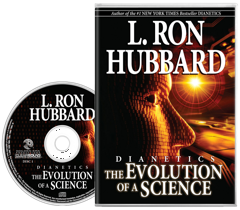The Basic Principles Of Dianetics
The 7-Second Trick For Dianetics
Table of ContentsLittle Known Facts About Dianetics.Get This Report on DianeticsDianetics Things To Know Before You Get ThisGetting My Dianetics To Work
I could not ever not desire to obtain anything that comes to mind for you- if it was or else, I wouldn't be sitting right here with you, doing this. I not only can never ever have a problem, or otherwise intend to listen to something that enters your mind for you, however I'm totally excited to recognize every idea, every idea, every photo or feeling that arises or shows up for you- don't ever think or else, and if for some reason you do, please just allow me know! Occasionally, you might have a thought, and picture, idea or incident pop up that does not seem to respond to the question, or relate to it, however nevertheless, always do inform me about it, and as we proceed, the relevance will arise for you.This is inherent in the basis of processing, and the topic of this discussion: the basic functions of the therapist and the client: The basic function of the therapist is, in contrast to "typical training", not to control, which implies to apply and/or inhibit, however to rather function from the basis of EMPOWERING THE CLIENT.

The 15-Second Trick For Dianetics
John Mcmasters expressed this standard truth incredibly well in among his lectures on Power processing, wherein he describes how he was asked what this "special flair" was that he had for giving such excellent sessions; he had to consider that for a moment, and spotted that it was what he wasn't doing, in addition to what he was doing: he had not been assessing, evaluating, computing, or as a matter of fact, generating any type of ideas, allow alone spoken expressions, after offering the command and while waiting on the computer to complete their solution to their contentment; he was, simply and just, existing with the PC, and totally interested.
The duty of the counselor, showed; that was his "unique flair". I have visit this website had my very own experience which showed me this well, really early on in the game. In 1982, having recently finished my training and teaching fellowship on New Era Dianetics, I was running this on a PC, and there was a point in the session where (being a bit wet behind the ears not yet having lots of hours under my belt as a specialist auditor) the computer appeared to be "taking as well lengthy" to share anything vocally after I offered him a command.
This key became the most valuable payment that John ever before made to the subject of therapy or bookkeeping (Dianetics). In my humble point of view, it is the best contribution that any individual has actually ever made to these subjectsthe application is completely non-judgemental, non-evaluative, and without any type of recommendation, suggestions or opinion.no preconditioned program for individuals, or 'degrees' that they need to do
In Idenics, the only source of info about a client is the private customer. In Scientology we prided ourselves on not evaluating for people. However all that truly indicated was that the auditor did not vocally assess for the computer in session. The registrars and principles police officers examined for the PC.
Dianetics Can Be Fun For Everyone

Anyone that had ever seen John audit could not help however observe a special top quality in his bookkeeping."The client's fundamental function is to be there with the purpose of relocating in top article the direction of their spiritual goals, and to easily and fully reveal and experience whatever materializes for them in answering the inquiries and carrying out the guidelines in the processing.
This is something to process as required. Likewise, individuals regularly have prior experience and/or indoctrination in auditing/processing which, in some methods, and to some levels, in fact misleads them right into attitudes, concepts and habits patterns that protect against the full awareness of these roles, and so they will certainly often tend to hinder the expressing of what comes to mind, as in the instances provided above - Dianetics. * The first, and maybe primary instances of mis-indoctrination leading to less than entirely smooth and efficient sessions, can be located in certain elements of the training regimens, or "TR's":"TR's" are typically a person's very first, or at the very least early, experience in Scientology, and while I will go on to describe what I see as the imperfections in concept and practice, however, often tend to be considerably restorative, done as they are given (Hubbard firmly insists that "TR's are not processing, they are training", but factually, they are both handling AND training)
There is no "flunking", and no rejection of the reality of this being processing. The focus, as it must be, is on experiencing the other person's visibility.
Dianetics - The Facts
